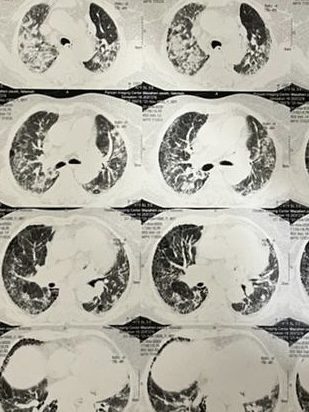This study focuses on a treatment for patients with connective tissue diseases (CTD) who also have a lung condition called interstitial lung disease (ILD). This condition, when it becomes progressive and fibrosing (PF-ILD), can lead to serious lung damage. The researchers specifically looked at a medication called nintedanib (NTB), which has been approved to treat PF-ILD, to see how well it works when combined with other immunosuppressive drugs (IS).
The study involved 25 patients who were treated at a single medical center in Japan. The researchers measured the patients’ lung function before and after starting NTB treatment by looking at something called forced vital capacity (FVC), which is a measure of how much air the lungs can hold. They found that after 6-12 months of treatment with NTB, the patients’ lung function improved, with FVC increasing significantly.
The study also looked at a biomarker called KL-6, which is linked to lung damage. They found that the levels of KL-6 decreased after treatment, suggesting that the lung disease was getting better. Additionally, patients who were treated with both NTB and new immunosuppressive drugs, like rituximab, showed even more improvement in lung function compared to those who were treated with NTB alone.
The researchers also monitored for side effects and found that while some patients experienced issues like diarrhea, nausea, or elevated liver enzymes, none of the patients had to stop taking NTB because of these side effects.
In conclusion, the study suggests that NTB is an effective and safe treatment for CTD-PF-ILD and that combining it with other immunosuppressive drugs may provide even better results. The biomarker KL-6 could be useful for monitoring how well the treatment is working.

